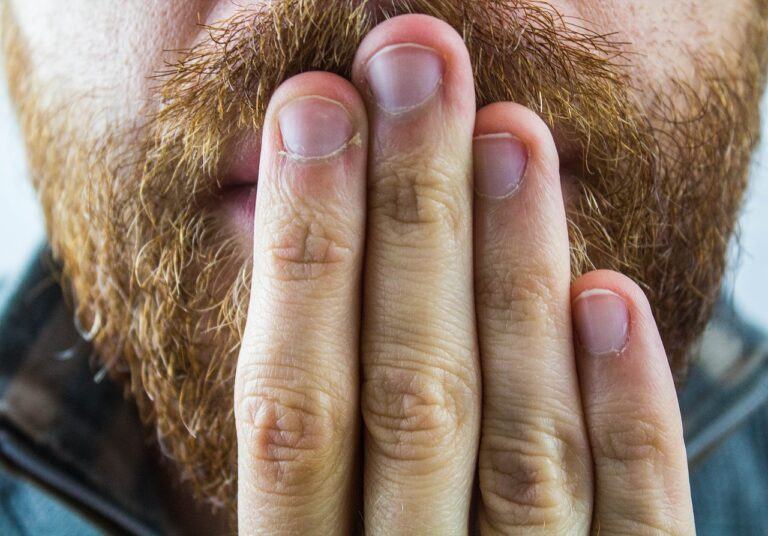When are Hiccups Dangerous?

Why Do We Hiccup and What Are the Risks of Prolonged Hiccups?
We’ve all experienced them, and we’ve all been left wondering why they happen at all. Hiccups are the involuntary contractions of your diaphragm muscle and intercostal muscles, which are responsible for breathing and controlling the expansion of your lungs during inhalation. The contraction of these muscles causes air to be rapidly drawn into the lungs, causing a rapidly increasing intra-abdominal pressure, followed by the clamping shut of the vocal cords or the glottis. The closing of the vocal cords is the source of the distinctive “hic” sound. The whole process of the hiccup happens very quickly, and you will typically find relief within a couple of hours, if not minutes, even without treatment. Until now, it all seems very annoying but pretty benign, so when are hiccups dangerous?
So, why do we hiccup? As it turns out, the medical community isn’t entirely sure what causes us to hiccup, but there are always plenty of hypotheses. One interesting fact, which seems to be on the more scientific ground, is that hiccups, in some cases, may be caused by irritation to the vagus nerve in the neck. For example, there was one case of a young man who had hiccups for over two years straight. Then, doctors discovered a tumor pinching off his vagus nerve, and as soon as surgeons removed the tumor, his bout of hiccups ended.
First, let’s explore some more hiccup facts.
Many years before modern medical schools, people created the word hiccup through imitation—the alternative spelling of hiccough results from association with the word cough. Hiccups are more common in men than women, and it’s more common for men to have hiccups for an extended time frame. Hiccups can happen on an individual basis, or they could happen in bouts. The time between hiccups or the rhythm is usually relatively consistent. A bout of these persistent hiccups generally resolves itself without intervention, although many home remedies are often used to find relief quickly. Hiccups can happen at any time to anyone at any age. There are some things you might want to avoid to prevent hiccups. Again, they’re typically harmless, but if they last a long time, they could be a symptom of an illness.
There are mild or “Benign Hiccups,” which are the ones that go away on their own in a short period, usually lasting from a few minutes to a few hours. They can happen when you:
- Eat and drink too quickly or too much.
- Drink carbonated beverages or alcohol.
- Are anesthetized for a procedure.

There are ones longer than 48 hours, considered “persistent hiccups;” the ones that go beyond two months are considered “intractable hiccups” or challenging to manage. Long-lasting hiccups are rare. They can be stressful and exhausting. “Intractable hiccups” are often a symptom of a more significant, underlying medical problem and might not go away until that issue is corrected.
Underlying conditions that may cause hiccups can be anything from acid reflux or inhaling too much air (common in those with chronic obstructive pulmonary disease) to other neurological disorders such as epilepsy or Parkinson’s Disease. Hiccups are also more likely to happen when you’ve eaten spicy food or have been drinking alcohol, and they are more common in men than in women.
Has anyone ever died from a bout of hiccups?
There’s limited evidence that anyone has ever died as a direct result of the hiccups. However, long-lasting hiccups can slowly damage your health. Continuing with hiccups for a long time can disrupt things like:
- Eating and drinking
- Sleeping
- Speaking
- Mood
Because of these disruptive challenges, if you have long-lasting hiccups, you may also experience things like:
- Fatigue
- Trouble sleeping
- Weight loss
- Poor coordination
- Irritability
- Depression and Stress
Persistent symptoms could eventually aid in degrading your health enough that death is a reality. However, rather than being the cause of death, long-lasting hiccups are a symptom of an underlying medical condition that requires attention.

Folk Remedies for Treating Hiccups
Folklore: In many European countries, India, and among some Tribes in Africa, it is believed that hiccups are caused when the person experiencing them is being talked about by someone who is not present with them.
There are many superstitions and folk remedies for hiccups, including head-standing, drinking a glass of water upside-down, being frightened by someone, eating a large spoonful of peanut butter, and placing sugar on or under the tongue. A simple treatment involves breathing into a paper bag, which increases the CO2 content in your lungs and then holding your breath. Other potential remedies include sipping ice-cold water and swallowing some granulated sugar. Drinking a glass of water with the ears plugged is a folk remedy that can be successful. In addition, other folk remedies include:
- Gently pulling on your tongue.
- Sticking your fingers down your throat to force a gag response.
- Rubbing your eyeballs.
- Gargling with water.
- And holding your breath is the most common.
None of these treatments have been proven consistently effective, though!
How Long Should You Treat Hiccups
While there is no known cure for hiccups in general, the measures mentioned above may help stop an episode of hiccups before they become prolonged and potentially dangerous to your health. In the case of suspected underlying conditions, it would be prudent to consult a medical professional to get to the root cause.
Is There Anything Else I Can Do?
One way to reduce hiccups is by drinking lots of water. Some people also report that sucking on a lemon also helps. According to a study in the journal Pediatrics, children who suck on lemon candies for 10 minutes every hour for three hours had fewer hiccups. In addition, some people have reported using ginger tea with some success.
When Should I See My Doctor
It is difficult to say when hiccups should be an immediate health concern. Suppose you have been experiencing persistent hiccups that last more than 48 hours and are accompanied by other symptoms such as chest pain, headaches, or fever. In that case, it’s probably a good indication to visit your doctor. However, if you’re only having short-term hiccups and you haven’t experienced any symptoms that make them problematic, chances are they will go away on their own.

In addition, it’s always a good idea to see your doctor if you’re unsure if you have any conditions that could be causing your hiccups. Sometimes underlying conditions need treatment or even surgery to cure hiccups. Your health care professional may want to prescribe medications and have you adjust some lifestyle habits contributing to your condition. Medications for hiccups include antacids like Maalox or Gaviscon, which help reduce stomach acid production; antihistamines; sedatives; nitroglycerin patches; medications for gastroesophageal reflux disease (GERD); and Botox injections. Doctors aren’t sure why we get hiccups; however, they know it can adversely impact other areas of our health, such as our breathing, sleeping, or being able to hold food down.
Some medications like codeine, antidepressants, and antihistamines can contribute to chronic hiccups. Unfortunately, there is no cure for hiccups once they start because all the body needs is rest. However, some methods can help stop a bout of hiccups temporarily:
Are There Records For The Longest Bouts of Hiccups
Charles Osborne, an American (December 14, 1892 – May 1, 1991), suffered from hiccups for over 68 years. As a result, he qualified for entry into the Guinness Book of World Records as the man with the most prolonged attack of hiccups, with an estimated 430 million hiccups. Nevertheless, he lived a somewhat everyday life, marrying twice and having eight children out of the two marriages. Then, when Osborne was 96 years old, his hiccups suddenly stopped. Ironically, he died just a year later, and doctors never precisely determined what caused his lifelong infliction.
A Florida teenager Jennifer Mee made the rounds on the national morning TV news shows in 2007. She became famous for hiccuping around 50 times per minute for more than five weeks. But, ironically, she became famous for a less desirable reason when she was convicted of murder in 2010 of a man she had just met on the internet.
There are also reports of a man living in West Africa who suffered from chronic hiccups for 59 years.
Christopher Sands, from Great Britain, hiccupped an estimated 10 million times in 27 months. His bout disrupted his life, as he could hardly keep food down, and sleeping was nearly impossible unless he just passed out from exhaustion. Christopher had hiccups for over two years straight until doctors discovered a tumor pinching off his vagus nerve, and as soon as surgeons removed the tumor, his bout of hiccups ended. After that, he was recorded as having hiccups every two seconds for twelve hours daily.
Christopher Sands interview with the BBC
Where in the world?
Are Some Regions Populations More Susceptible To Hiccups Than Others? In populations where malaria is prevalent, hiccups are more likely to signify malaria. In these regions, hiccups are considered dangerous, and prolonged hiccups can lead to death by asphyxiation. In regions without malaria, prolonged hiccups are usually harmless. Still, if they last for more than three days, it’s worth checking with a doctor to ensure there’s not another underlying condition causing them.
The Bottom Line
Let’s recap – Most of the time, hiccups only last a few minutes. However, they can sometimes last longer.
When bouts of hiccups last a long time, they can begin to affect your day-to-day life. For example, you will experience issues like malnutrition, fatigue, and feeling depressed.
While the hiccups themselves are unlikely to be fatal, long-lasting hiccups may be your body’s way of indicating you have an underlying health condition that needs treatment.
Visit your doctor should you experience hiccups that last longer than two days. They can work with you to help find out the cause.
Meanwhile, if you’re having an acute bout of the hiccups, don’t over-stress as they usually resolve themselves on their own shortly.
